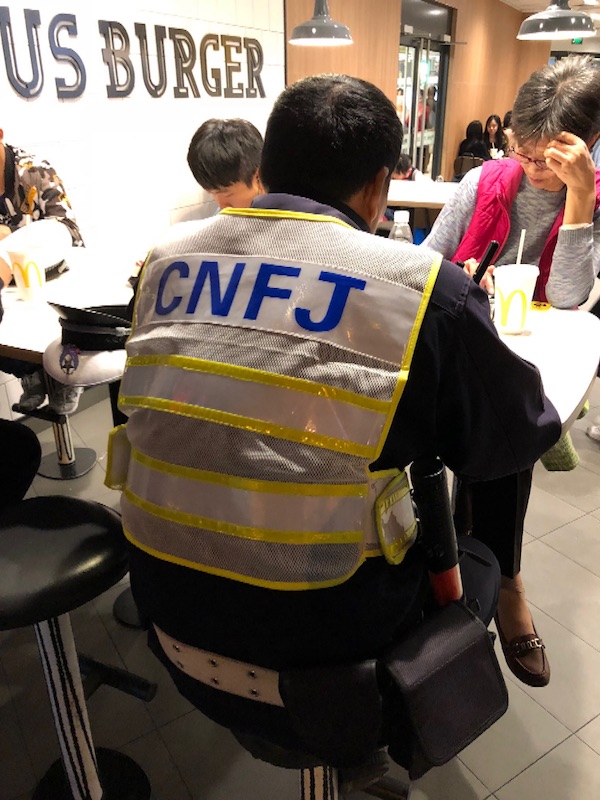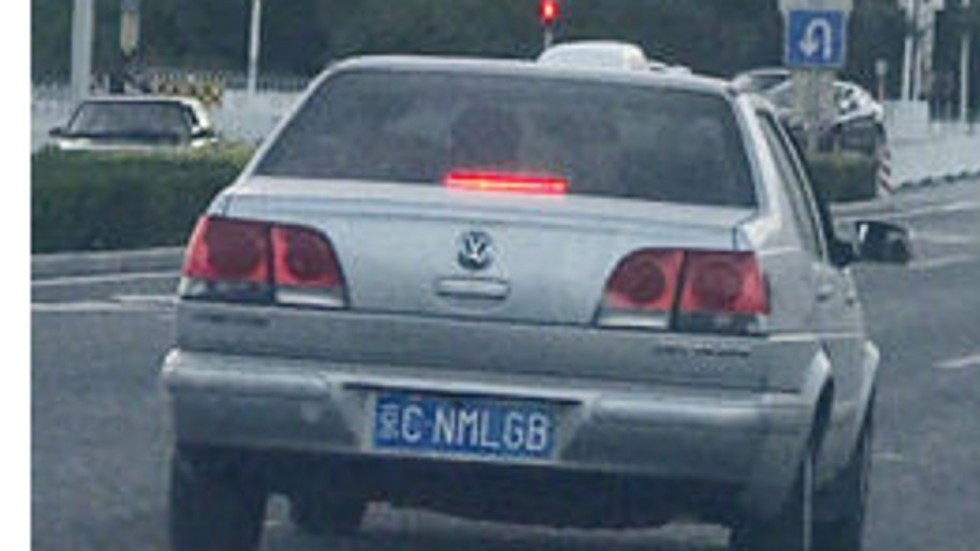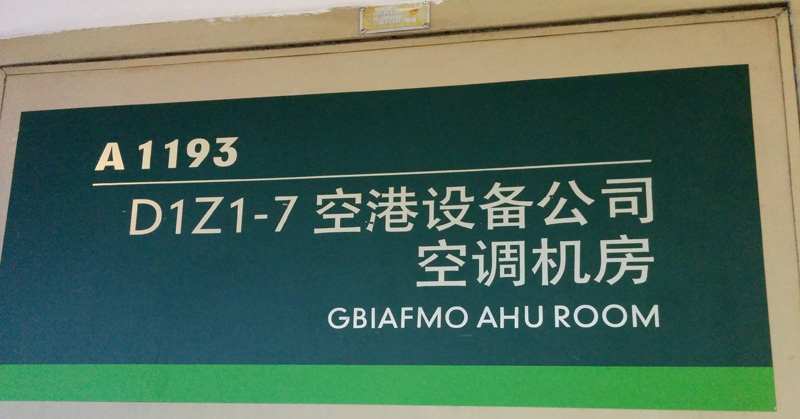Archive for Acronyms
November 2, 2019 @ 5:47 am· Filed by Victor Mair under Acronyms, Language on the internets, Writing systems
Recently, one of my students found an interesting post from the Communist Youth League about the use of Hanyu Pinyin acronyms on the Internet. When people type on Weibo, WeChat, and other social media, they frequently use Pinyin acronyms. For examples:
Read the rest of this entry »
Permalink
August 2, 2019 @ 11:05 am· Filed by Mark Liberman under Acronyms, Computational linguistics
In "Contextualized Muppet Embeddings" (2/13/2019) I noted the advent of ELMo ("Embeddings from Language Models") and BERT ("Bidirectional Encoder Representations from Transformers"), and predicted ERNiE, GRoVEr, KERMiT, …
I'm happy to say that the first of these predictions has come true:
"Baidu’s ERNIE 2.0 Beats BERT and XLNet on NLP Benchmarks", Synced 7/30/2019
"Baidu unveils ERNIE 2.0 natural language framework in Chinese and English", VentureBeat 7/30/2019
Actually I'm late reporting this, since ERNIE 1.0 came out in March:
"Baidu’s ERNIE Tops Google’s BERT in Chinese NLP Tasks", Synced 3/25/2019
But I'm ashamed to say that the Open System for Classifying Ambiguous Reference (OSCAR) is still just an idea, though I did recruit a collaborator who agreed in principle to work with me on it.
Permalink
March 13, 2019 @ 12:07 am· Filed by Victor Mair under Acronyms, Bilingualism, Pronunciation, Puns
Thomas Lumley called my attention to the neologism and bilingual pun "whaumau", now a Twitter hashtag:
Read the rest of this entry »
Permalink
November 3, 2018 @ 8:12 pm· Filed by Victor Mair under Acronyms, Borrowing, Diglossia and digraphia, Writing systems
Here we go again. More Roman letters and English words on police and security guard uniforms in China (see below for some earlier posts). Here's a doozy:

Read the rest of this entry »
Permalink
March 31, 2018 @ 6:10 pm· Filed by Victor Mair under Abbreviation, Acronyms, Language and society
On her blog today retired U. Wisconsin law Prof. Ann Althouse asks some interesting questions about local Nanjing reactions to a nursing home (possibly with a morgue and a kindergarten) being located nearby. She cites this article by Fan Liya in Sixth Tone (3/30/18): "Nanjing NIMBYs Oppose Hospice, Fearing Death in Their Midst/Nursing home offering end-of-life services is one of a string of facilities to encounter opposition due to superstition".
Read the rest of this entry »
Permalink
September 29, 2017 @ 10:16 am· Filed by Victor Mair under Acronyms, Slang
License plate of a car in Beijing:

Read the rest of this entry »
Permalink
July 27, 2017 @ 11:21 pm· Filed by Victor Mair under Acronyms, Evolution of language, Language and science, Translation
[This is a guest post by Alex Wang, a long-term resident of Shenzhen, China]
I was wondering if there have been any studies on how readily a language can absorb new elements and features.
Yesterday at the Pacific Coffee shop near where I live, by chance I struck up a conversation with a professor who teaches economics at the local Shenzhen University. He heard me speaking with my younger son in English and, when I went to attend my older son, he struck up a conversation with my younger son. I suppose he was curious about how my younger son's oral English skills were so “good”, since he has a daughter who is around the same age as my older boy. It would seem many locals want an English speaking friend for their children so as to have an environment to practice.
Read the rest of this entry »
Permalink
February 18, 2017 @ 9:40 am· Filed by Victor Mair under Acronyms, Borrowing, Names, Translation
[This is a guest post by Nathan Hopson]
Yes, the following image from the most recent Weekly Playboy (週刊プレイボーイ Shūkan Pureibōi; not a regional edition of Hugh Hefner's Playboy), is labeled "Poop":

Read the rest of this entry »
Permalink
March 26, 2016 @ 4:01 pm· Filed by Victor Mair under Abbreviation, Acronyms, Borrowing
[This is a guest post by Nathan Hopson]
I live in the central Japanese industrial hub of Nagoya, the city that Toyota (re)built. Despite the greater Nagoya metro area's twelve million inhabitants and a GDP trailing Switzerland for #20 on the world country rankings, the locals in particular refer to the city as inaka, the boonies. Nagoya is a city almost universally described as, "not much to visit, but a nice place to live."
Read the rest of this entry »
Permalink
December 1, 2015 @ 5:13 pm· Filed by Victor Mair under Acronyms, Pronunciation, Transcription
We've had a recent post on the pronunciation of this lightning rod of a word.
"Pronouncing 'Daesh' " (11/15/15)
From a colleague:
Guthrie's article* states:
"And the vowel which begins the word 'islaamiyya' becomes an 'a' sound when differently positioned in a word, hence the acronym being pronounced 'da’ish' when written in Arabic, and the 'a' coming over into our transliteration of the acronym."
Read the rest of this entry »
Permalink
October 12, 2015 @ 11:16 pm· Filed by Victor Mair under Acronyms, Language on the internets, Slang, Uncategorized
Of the many websites dealing with contemporary Chinese language and culture, chinaSMACK is one of the best. So eye-popping is chinaSMACK's content that I could very easily spend nearly all of my time immersed in it.
One chinaSMACK feature that undoubtedly will be of considerable interest to Language Log readers is this glossary of terms frequently encountered on the Chinese internet.
Read the rest of this entry »
Permalink
September 27, 2015 @ 9:48 pm· Filed by Victor Mair under Acronyms, Lost in translation
Jim Breen snapped this photograph in the departure lounge at Guangzhou airport:

Read the rest of this entry »
Permalink
January 16, 2015 @ 4:33 pm· Filed by Victor Mair under Acronyms, Morphology, Writing
Michael Kaan writes:
I was looking up information on the SERE program after watching Zero Dark Thirty, and noticed the odd patch the program has for its insignia:

Read the rest of this entry »
Permalink




